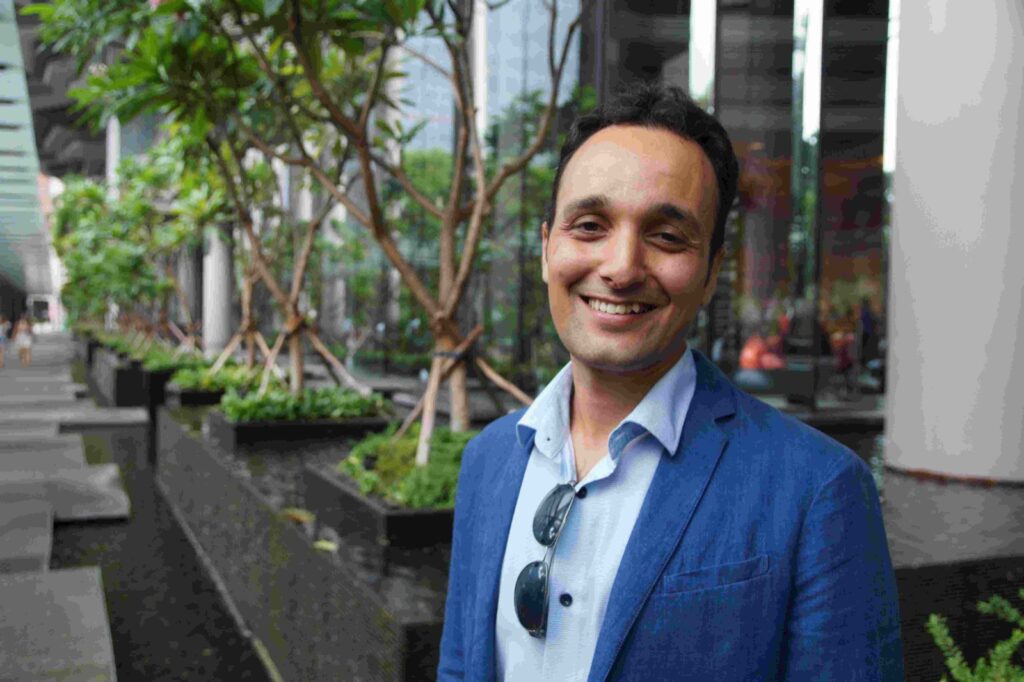"Seamless and personal" – how convenience stores are bridging the insurance gap

“Seamless and personal” – how convenience stores are bridging the insurance gap | Insurance Business Asia
Insurance News
“Seamless and personal” – how convenience stores are bridging the insurance gap
“Insurance is often seen as complex, with many intricacies”
Insurance News
By
Kenneth Araullo
There have been many strides and leaps made by industry in its collective efforts to make insurance much more accessible, especially to lower income groups. In the case of Igloo, a full-stack insurtech based in Singapore, the strides have been towards convenience stores, and how these ubiquitous fixtures in Southeast Asia can carry a viable future for policies aimed at the underinsured.
“One of the main reasons why there’s such low insurance penetration in Southeast Asia is because insurance is often seen as complex, with many intricacies that might be daunting for people,” Igloo CEO and co-founder Raunak Mehta (pictured above) said in conversation with Insurance Business Asia. “At Igloo, our main mission is to provide affordable and accessible insurance to everyone regardless of their socioeconomic status.”
Igloo’s research showed that customers in Southeast Asia are hesitant to purchase complex products and services online without supervision – a category that, unfortunately, insurance falls into. In addition to this, despite its status as one of the world’s fastest-growing digital economies, Southeast Asians do not want to provide personal information online out of fear of being scammed, a sentiment that resonates the most with the lower and middle-income class.
The solution? An omnichannel approach that puts digital insurance products in a physical location that’s less daunting than a sterile office space and makes it more tangible to build customer trust. Thus, a partnership with convenience store chain Circle K was born, with Igloo offering insurance products through the latter’s over 400 stores in Vietnam.
“It also makes it available to customers through a different channel, making it easier for them to purchase insurance, thereby increasing accessibility – another major barrier to insurance penetration,” Mehta said.
Addressing low insurance penetration in Southeast Asia
According to Mehta, accessibility and affordability are the key reasons that insurance penetration remains low in Southeast Asia. Selling insurance products at convenience stores puts them at a level similar to your daily groceries and necessities, making them less intimidating, especially to those in less financially knowledgeable groups.
The partnership with Circle K, Mehta said, is an embodiment of the role of insurtech in this industry: increasing both accessibility and affordability to bridge the insurance gap and help cover more people across the region.
“Through insurtech, insurers can integrate their products and services on day-to-day digital platforms such as e-wallets and e-commerce apps. As we move to a digital way of life, providing these products and services on digital platforms that users are accustomed to will help us increase accessibility exponentially. By using insurtech to integrate insurance offerings, insurers can reach a wider customer base,” he said.
Mehta also said that as an insurtech, Igloo aims to facilitate a more “seamless and personal” experience, not only for their insurance partners but also for their customers. “This can be done by simplifying claims management processes and policy purchases, for instance,” he said.
Beyond convenience stores
Currently, Igloo’s partnership with Circle K is only available in stores in Vietnam. However, Mehta said that the firm will decide on other possible locations after gauging this collaboration’s success. He further said that the region remains a key market for Igloo, given its low insurance penetration rate and future potential.
“We conceptualize our offerings by combining market research with inherent demand from our digital partners,” Mehta said. “This helps us identify opportunities in each of the markets to help scale our products and drive our agenda of inclusive insurance in the region.”
Citing the firm’s recent efforts to insure farmers in the country with its blockchain-based weather index insurance, Mehta said that the latter’s potential for scalability made it perfect for an application with Vietnam’s coffee farmers as well. Given the nature of Southeast Asia as a region best known for its agricultural offerings, the firm is looking to expand the parametric policy to the region’s other countries.
Beyond convenience stores and weather index insurance policies, there is a sector that Mehta singled out as something that needs bridging.
“With the digital economy in Southeast Asia expected to reach US$309 billion by 2025, driven by rapid digitalisation and a fast-emerging tech-savvy demographic, there’s a greater need to understand and reach the previously uninsured segment,” Mehta said. “For instance, the MSMEs (micro, small and medium enterprises) are the backbone of Southeast Asia’s economy, yet a lot of these businesses remain vulnerable due to limited access to financial services since traditional risk assessment finds them high-risk or there’s a lack of data to support the analysis. This is the gap we want to bridge for MSMEs with our new products, so they can survive and thrive in today’s increasingly competitive and digital world.”
What are your thoughts on this story? Please feel free to share your comments below.
Related Stories
Keep up with the latest news and events
Join our mailing list, it’s free!






